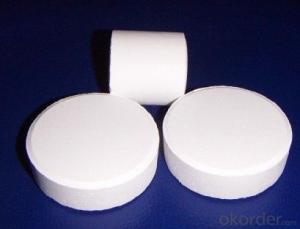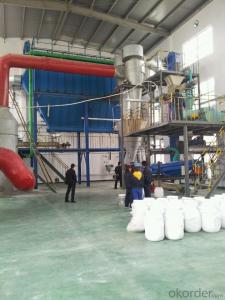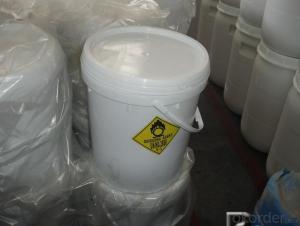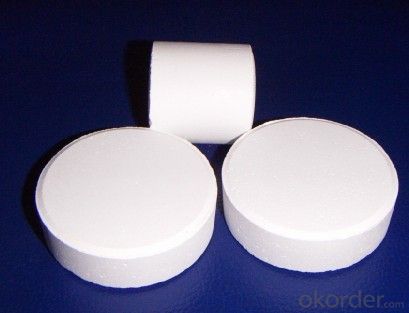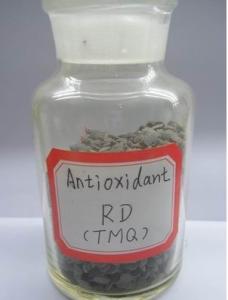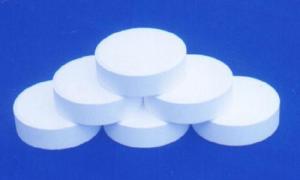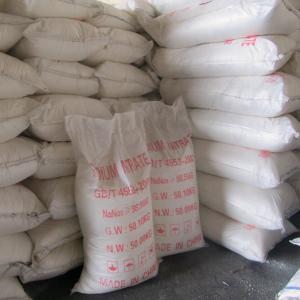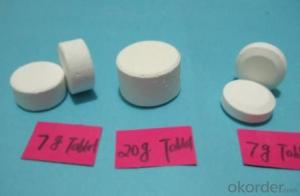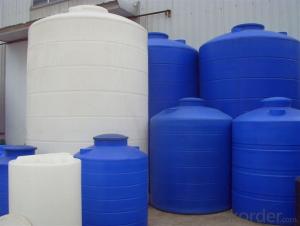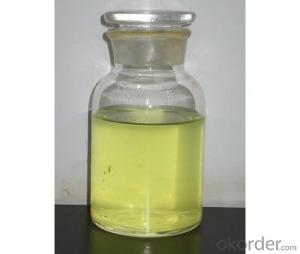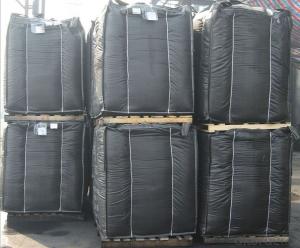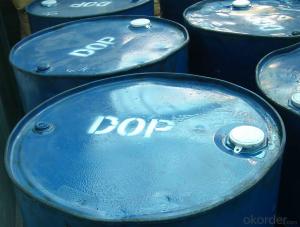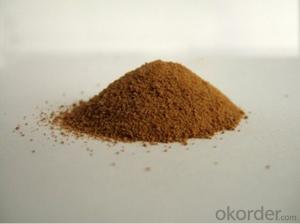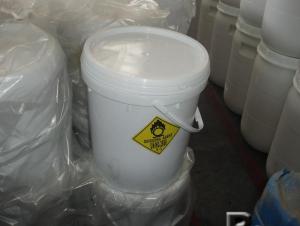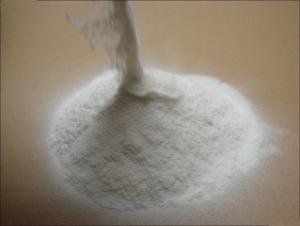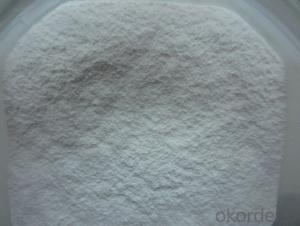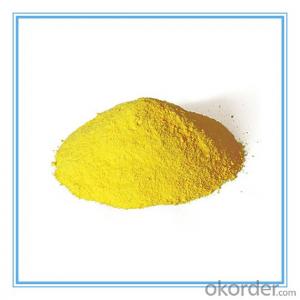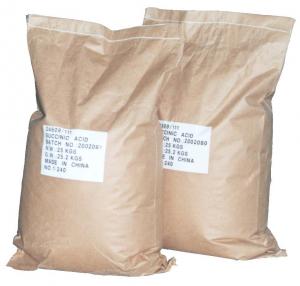Low Price Swimming Pool Treatment Powder Cyanuric Acid
- Loading Port:
- Tianjin
- Payment Terms:
- TT OR LC
- Min Order Qty:
- 17 m.t.
- Supply Capability:
- 1800 m.t./month
OKorder Service Pledge
OKorder Financial Service
You Might Also Like
Cyanuric Acid
Structure of Cyanuric Acid General Descriptions:
Trade Name: Isocyanuric Acid
Other name: Cyanuric Acid; 1,3,5-Triazine-2,4,6-triol
Uses: Bleaches and sanitisers.
Formula: C3H3N3O3
Molecular Weight: 129.07
CAS NO.: 108-80-7
Main Features of the Cyanuric Acid:
White powder, granular or colored tablet form, non-toxic and odorless
Cyanuric Acid Image:

Cyanuric Acid Specification:
| ITEM | SPECIFICATION | RESULT | |||
| Content | ≥98.5% | 98.64% | |||
| Moisture | ≤0.5% | 0.11% | |||
| PH value | 4.0-4.5 | 4.26 | |||
| Fe2+ | ≤15ppm | 7.5ppm | |||
| NH4+ | ≤200ppm | 97ppm | |||
| Ash | ≤0.1% | 0.05% | |||
| Insoluble matter in DMF | ≤0.3% | 0.25% | |||
| Appearance | White crystalline power | White crystalline power | |||
| Mesh number | 95% pass 80 mesh | 95% pass 80 mesh | |||
| White degree | ≥89 | 90.5 | |||
| Conclusion: | The product complies with the standard above. | ||||
Cyanuric Acid Packing:
in 25kg, 1000kg bag for powder
in 25kg plastic bag or 50kg PE drums for granular
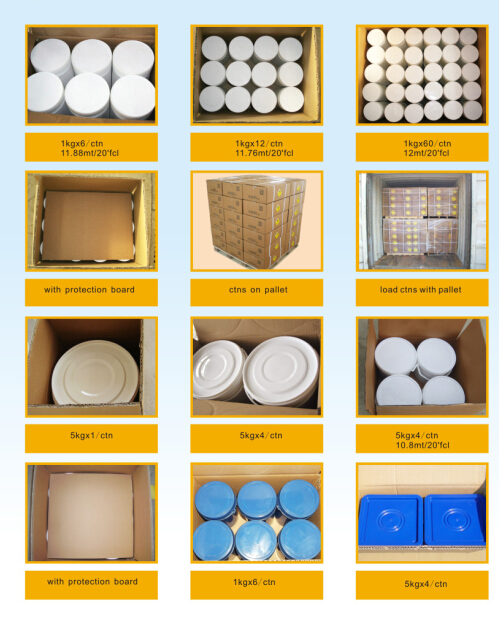
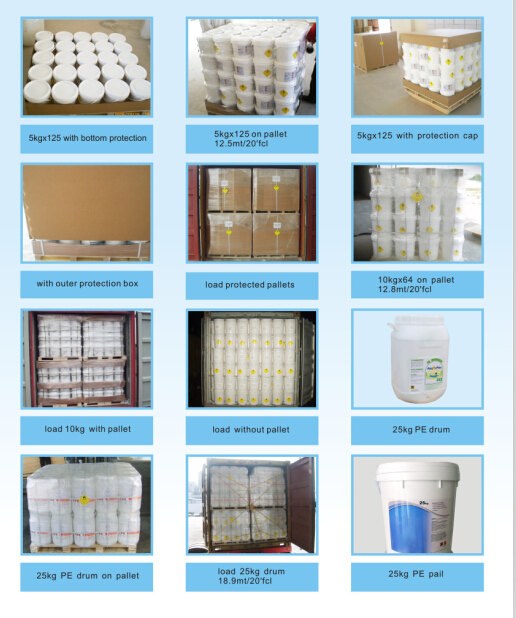
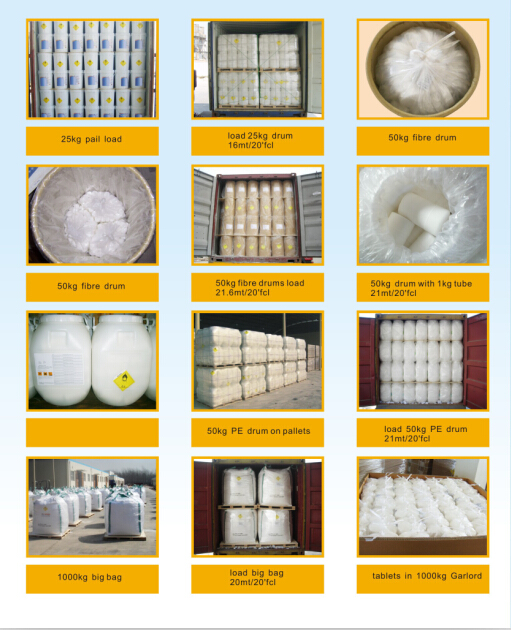
Storage:
kept in a light-proof,well-colsed,dry and cool place.
Service we can provide:
1. Mixed container, we can mix different items in one container.
2. Quality control, before shipment, free sample for test. after shipment, keep sample for 3 years
3. Prompt shipment with professional documents
4. Packing as your request, with photo before shipment
Our Advantages:
Full experience of large numbers containers loading in Chinese sea port
Fast shipment by reputed shipping line
Packing with pallet as buyer's special request
Best service after shipment with e mail
Cargoes together with container sales seervice available
Full experience for Canada & Japan export
Cargoes photo before and after loading into container
Raw materials from chinese origin
Professional Loading:
1.We will provide you with professional loading
2.We have one team supervise uploading the materials. We will check the container, the packages
3.Every step, taking pictures and make records.
4.we will make a complete Loading Report for our customer of each shipment
- Q: The addition of the catalyst has no effect on the chemical equilibrium of the movement
- The essence of chemical equilibrium is a dynamic equilibrium. Under certain conditions, the equilibrium constant of the reaction is a certain value. The role of the catalyst is to reduce the activation energy required for the reaction, increase the number of activated molecules, and increase the number of molecules per unit time , But the positive reaction is positive for the reaction, so do not change the speed.
- Q: What are the characteristics of the catalyst in the chemical reaction?
- In simple terms: the catalyst itself is involved in the reaction, the quality of the reaction before and after the same, the ingredients do not change. The catalyst can change the rate of chemical reaction, increase the rate of reaction called catalyst, slow the inhibitor.
- Q: What is a catalyst?
- The catalyst plays a role in a variety of ways that are likely to temporarily alter the chemical changes associated with the reactants themselves, and may also only help to adsorb the physical changes in the reactants, but the reaction eventually becomes its own form The
- Q: What happens to a catalyst after a chemical reaction?
- If it is only a catalyst, then by definition it will still be there at the end.
- Q: Chemistry why the catalyst can be equal to speed up the positive reaction rate
- Since the catalyst only changes the activation energy and the amount of reactivity can be reduced, the amount of reaction energy is also reduced. Therefore, a positive catalyst is also a good catalyst for its reaction. Speed up the same multiple.
- Q: i know that the catalyst is not react in an reaction,,,so that i don't why could it speed up the reaction?? Further, how does the scientist determine the catalyst for certain reaction??please give me more example....i really want to know it! i do not have any idea about this...so hope your answer will help me....thanks!
- you can say catalyst react with the reagent and it gives intermediate product, this product can easier react with another reagent (the activation energy is lower). And in the end the catalyst is reconstructed. Scientists determine the catalyst in experiments...
- Q: What is the difference between a catalyst and an inducer in a chemical reaction?
- The catalyst does not participate in the reaction, but only the carrier of the reaction; the inducer will participate in the reaction
- Q: Just something I've always wondered about...
- there are so much catalysts made up of transition metals. because one of the characteristics of transition metals is can be made to catalyst. one of the catalyst that is mostly used is iron fillings which is used as catalyst to make ammonia from nitrogen gas and hydrogen gas.
- Q: Now, i am studying for my biology exam in 3 weeks time...i stumbled upon catalase, and then checked my book its catalyst...now im confused...is there a different among these 2 terms? i think..catalyst is the when a substance brings up or about a chemical reaction without using itself up and then catalase breaks down the toxic by-product of metabolism, hydrogen peroxide, into water and oxygen.Or am i wrong?please explain what is catalyst and catalase in biology or are they the same, just differently?
- A catalyst is a chemical which speeds up a reaction but without being used up in the reaction, so can be used over again. Catalase is an example of an enzyme which are biological catalysts ie speed up reactions in cells. Enzymes are specific and the enzyme catalase breaks down hydrogen peroxide to water and oxygen. A catalyst which also breaks down hydrogen peroxide is manganese dioxide.
- Q: An important property of the catalyst is that the reaction equilibrium is not changed while increasing the forward reaction rate and the reverse reaction rate. However, because the enzyme for the specificity of the substrate, is not almost every reaction by the enzyme are one way to do it.
- In biochemical reactions, most appear to be positive / inverse reaction combinations, in fact there are differences in peripheral product / energy offerings. In addition to the molecules of interest, there are many other small molecules involved in the reaction, and these small molecules in the forward or reverse reaction in the transformation is not completely mutually negative. Even for the same reaction, since the corresponding substrate may be removed in the subsequent step and the pulling balance occurs, it is also possible that the forward or reverse direction can occur. Decisive factors usually come from the surrounding other enzymes, coenzymes, small molecules concentration.
Send your message to us
Low Price Swimming Pool Treatment Powder Cyanuric Acid
- Loading Port:
- Tianjin
- Payment Terms:
- TT OR LC
- Min Order Qty:
- 17 m.t.
- Supply Capability:
- 1800 m.t./month
OKorder Service Pledge
OKorder Financial Service
Similar products
Hot products
Hot Searches
Related keywords
